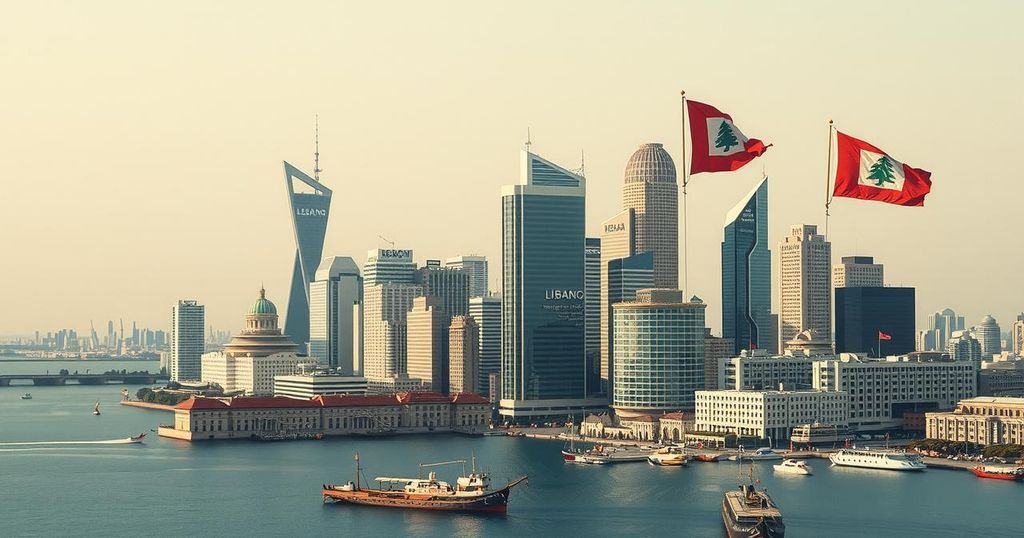Hezbollah Must Be Brought Under Lebanese Law to Achieve Genuine Reform

Lebanon must confront Hezbollah’s parallel financial empire for true reform to happen. Recent legislative changes provide regulatory access to banking data, essential for unlocking IMF aid. However, without addressing Hezbollah’s influence and operations, genuine recovery is unlikely. The internal political dynamics, as well as entrenched interests, continue to pose major challenges, leaving Lebanon at risk of economic and political collapse.
Lebanon, once heralded as the ‘Switzerland of the Middle East,’ now finds its institutions crumbling under the weight of corruption, foreign intervention, and ongoing civil strife. Recent reforms, including the halt of banking secrecy, provide a faint glimmer of hope. Yet, as long as Hezbollah’s parallel state and financial operations remain untouched, genuine reform is likely to stay a distant dream.
In late April, the Lebanese parliament approved a critical reform that expands regulatory authority’s access to bank account information, including that of the central bank. This move seeks to facilitate a long-awaited financial package of $3 billion from the International Monetary Fund (IMF) by enabling retrospective audits of customer accounts, reaching back a decade, without needing prior justification. While this step appears essential for addressing entrenched financial opacity, Lebanon’s current situation proves complex.
The financial crisis that erupted in 2019 revealed severe structural flaws in Lebanon’s banking system, including the random freezing of depositors’ funds. There was also a disturbing “fresh dollars” system, which distinguished new cash from older deposits. Meanwhile, Hezbollah thrived amid these institutional failures, solidifying its control over the burgeoning shadow economy. These developments raise critical questions about whether the new auditing powers will scrutinize Hezbollah’s vast financial system.
Hezbollah’s financial dealings are far from a minor issue; they are deeply woven into the fabric of Lebanon’s ongoing crisis. The group has created a sizable parallel economy, complete with its own banking systems and revenue sources, notably through Al-Qard Al-Hasan, which functions ostensibly as a charitable entity. Despite U.S. sanctions, it remains out of reach from central bank regulations and continues to finance Hezbollah’s activities.
Hezbollah operates far beyond Lebanon’s borders, being well-established in illicit ventures—ranging from drug trafficking to money laundering and even illegal diamond trading. Documented in various reports, these enterprises span the globe, from South America to Africa, allowing billions to flow into Hezbollah’s treasury. Their operations bypass legitimate financial networks via cash couriers and shell companies, demonstrating a sophisticated system that operates outside oversight.
Moreover, Hezbollah enjoys substantial backing from Iran, which sustains its operations within Lebanon. This support helps Hezbollah maintain informal markets concerning real estate and other goods that often undercut legitimate businesses, further entrenching its influence in the socio-economic landscape.
If the Lebanese government genuinely aims for reform, confronting Hezbollah’s financial empire becomes imperative. Regulatory changes that fail to address Hezbollah’s shadow economy could be seen as merely cosmetic. True reform would necessitate that all economic activities comply with the rule of law without exception.
However, skepticism remains high. Hezbollah’s status stems from the aftermath of Lebanon’s civil war and the long-term presence of Syrian forces. Successive governments have tolerated the group’s growth, prioritizing stability over accountability. Even now, proposals to disarm Hezbollah or curb its activities are often dismissed as impractical or dangerous.
Yet, the cost of ignoring Hezbollah’s power is steep. With Lebanon on the brink of political and economic chaos, allowing the group to operate freely undermines the state. As Hezbollah’s private financial system continues to grow unchecked, it fuels systemic corruption and blocks any chance of recovery.
Furthermore, Hezbollah’s extensive social services—from schools to clinics—function independently of state control. These services not only provide essential support for Shiite communities but also act as tools for political loyalty. Integrating these services into the Lebanese framework is critical for fostering a national identity.
Undoubtedly, the task ahead is daunting and fraught with potential confrontations with a well-armed faction backed by Iran. Moderate voices often emphasize the necessity of Hezbollah for national security in light of perceived external threats. However, the far more pressing threat is internal: the disintegration of state authority and the normalization of lawlessness.
Lebanon’s new leadership has demonstrated preliminary progress with recent reforms but will face monumental challenges ahead. Sovereignty is all-encompassing; a nation cannot proclaim reform while simultaneously allowing a militia’s financial empire to thrive unchecked. International aid cannot flow while criminal networks remain operational.
Ultimately, genuine reform is a task for the Lebanese themselves. Change driven solely by external pressures will not be sustainable. Lebanese leaders must draw on the courage to act not merely to placate the IMF but to secure the very future of their nation. Implementation of the rule of law comprehensively—applying equal standards to banks, public officials, and Hezbollah alike—presents the pathway toward a rebuilt Lebanon.
The road ahead will not be easy; significant resistance will come from established interests. Nevertheless, taking steps to impose state authority over financial sectors and the informal market can help salvage Lebanon from its precarious brink. Inaction now threatens the very essence of the nation, risking total chaos. Ending Hezbollah’s unchallenged power is a necessity for genuine recovery to begin.
Lebanon’s current crisis is deeply intertwined with Hezbollah’s unchecked power and its extensive financial network. As the country seeks to regain control over its financial systems and rebuild public trust, confronting Hezbollah becomes an indispensable part of any meaningful reform. Without addressing these underlying issues, Lebanon risks further instability and the loss of sovereignty. While the challenges are significant, the imperative for change remains clear, as the nation teeters on the edge of chaos.
Original Source: weeklyblitz.net








